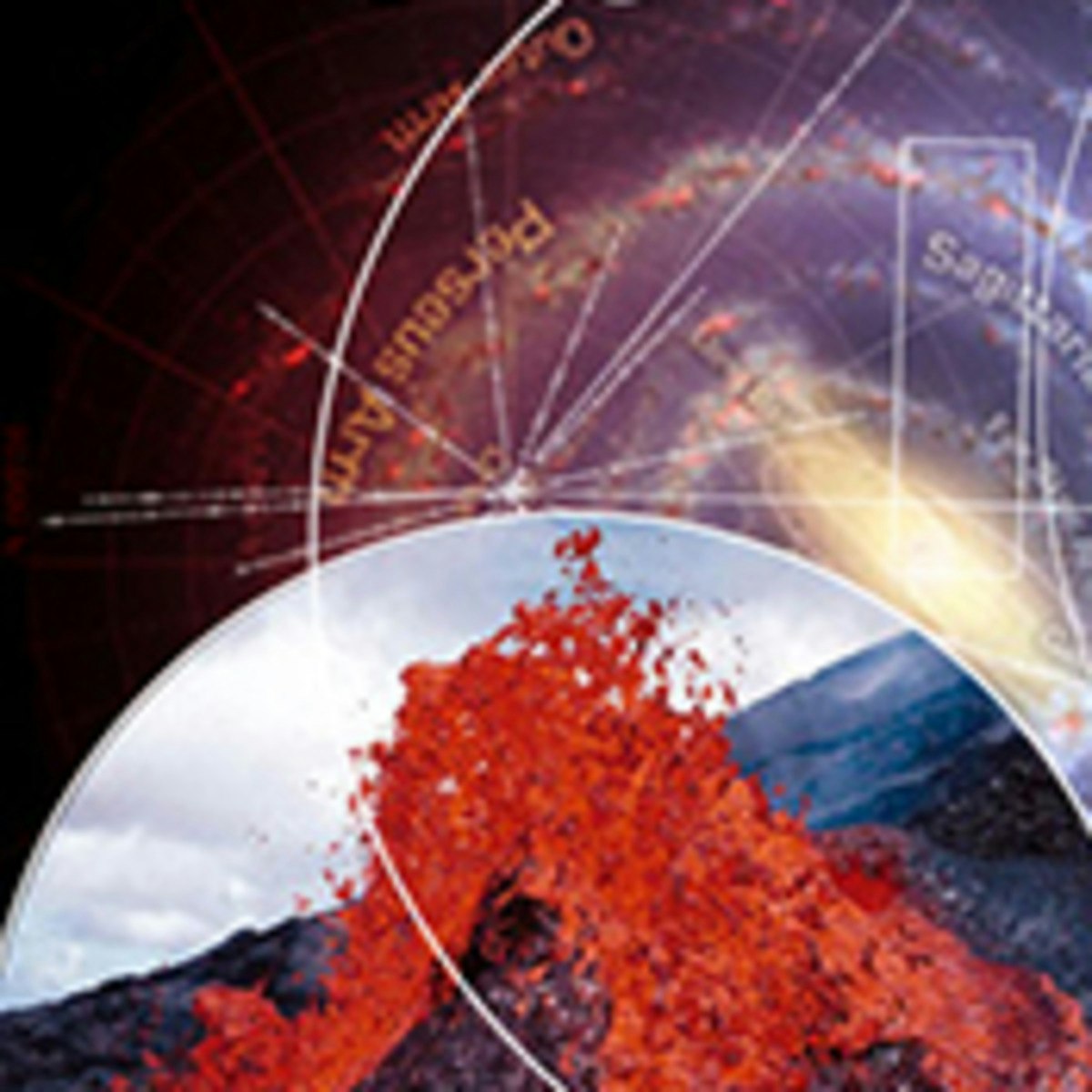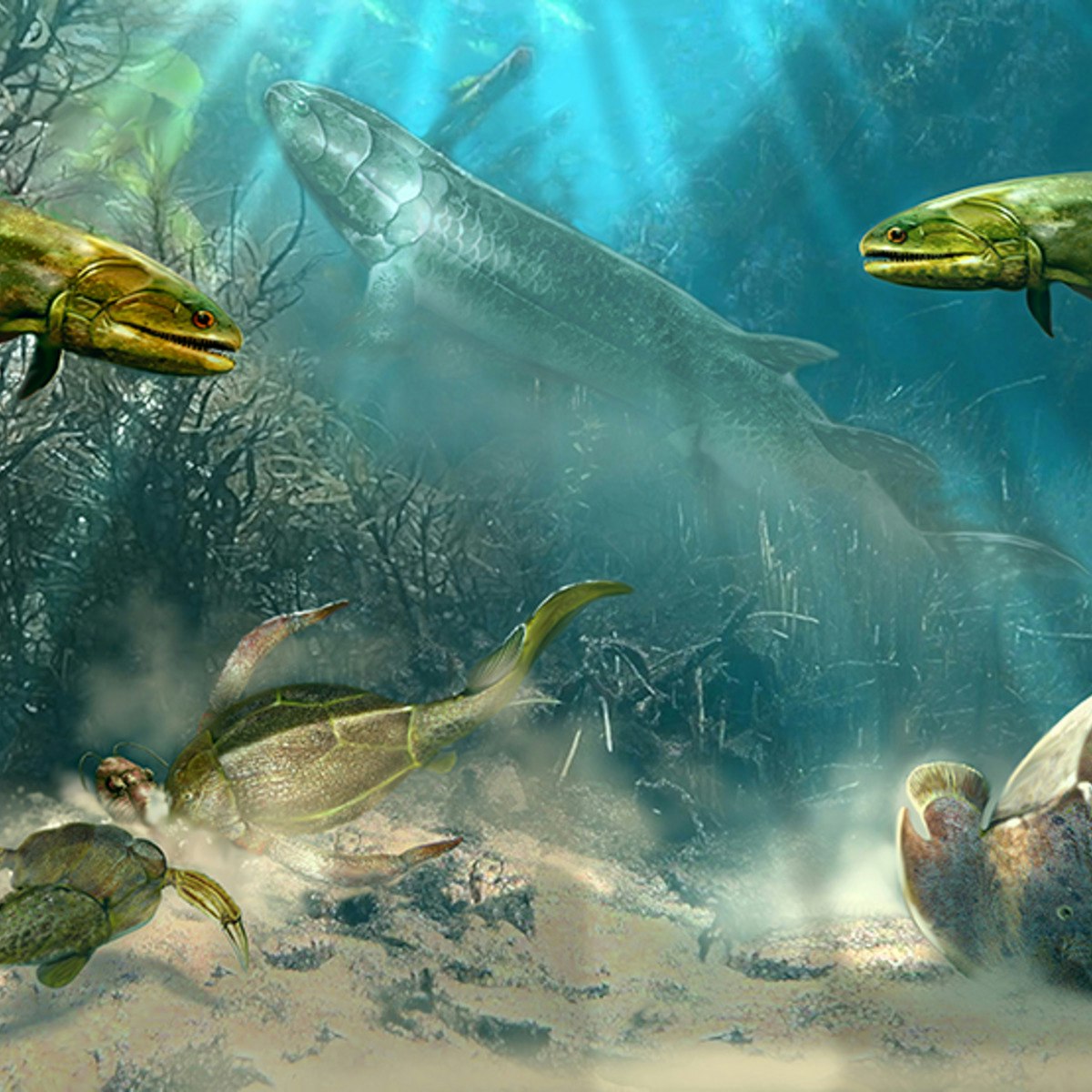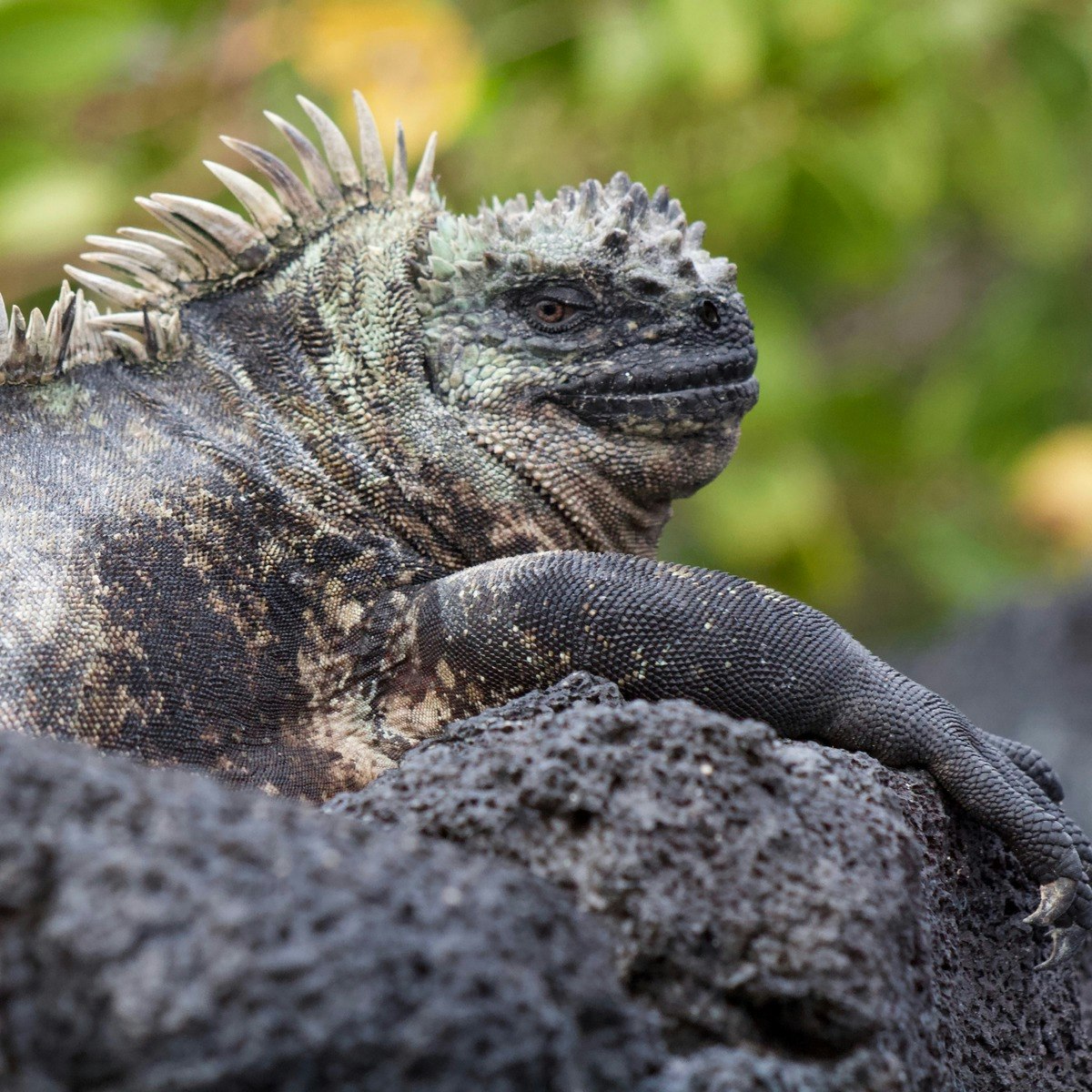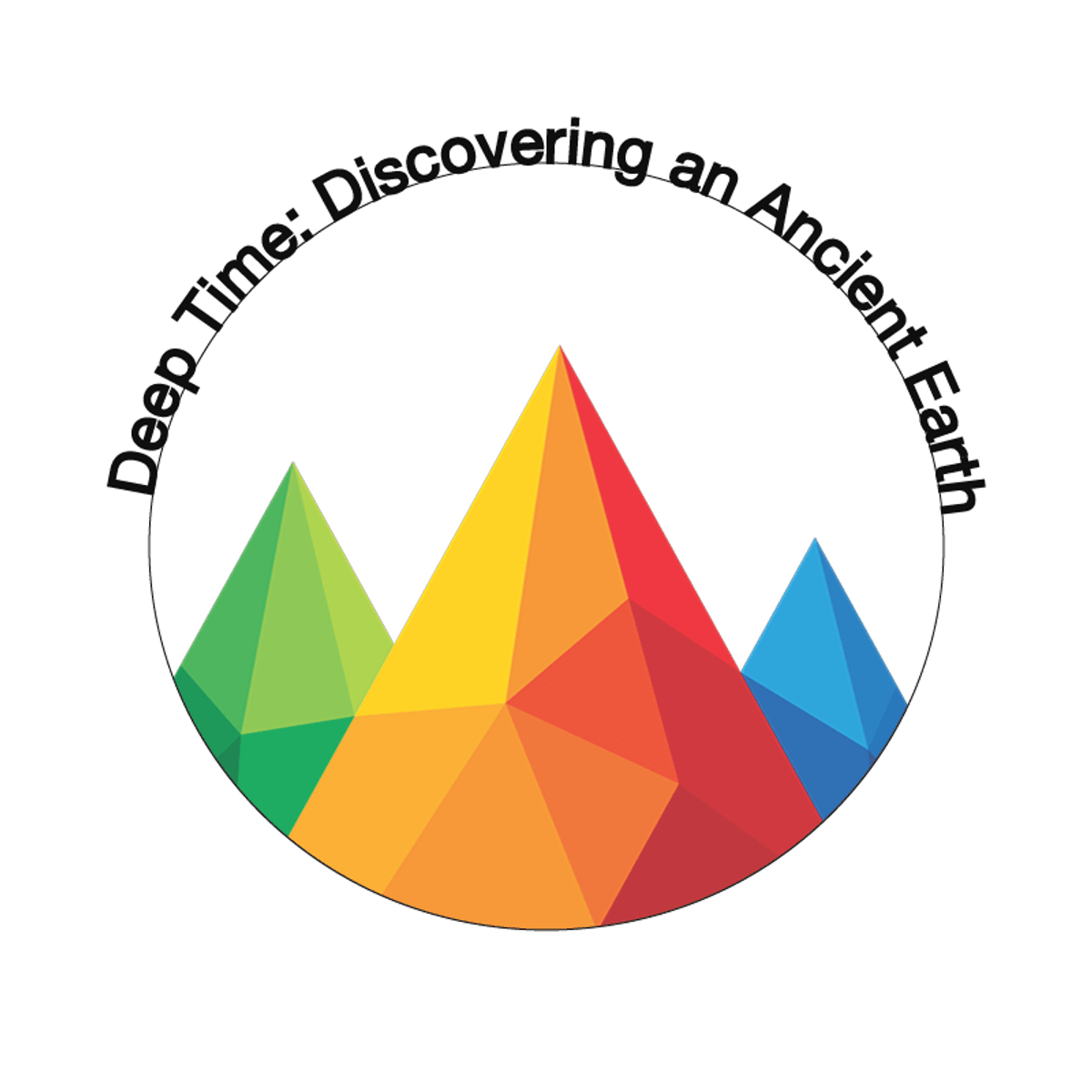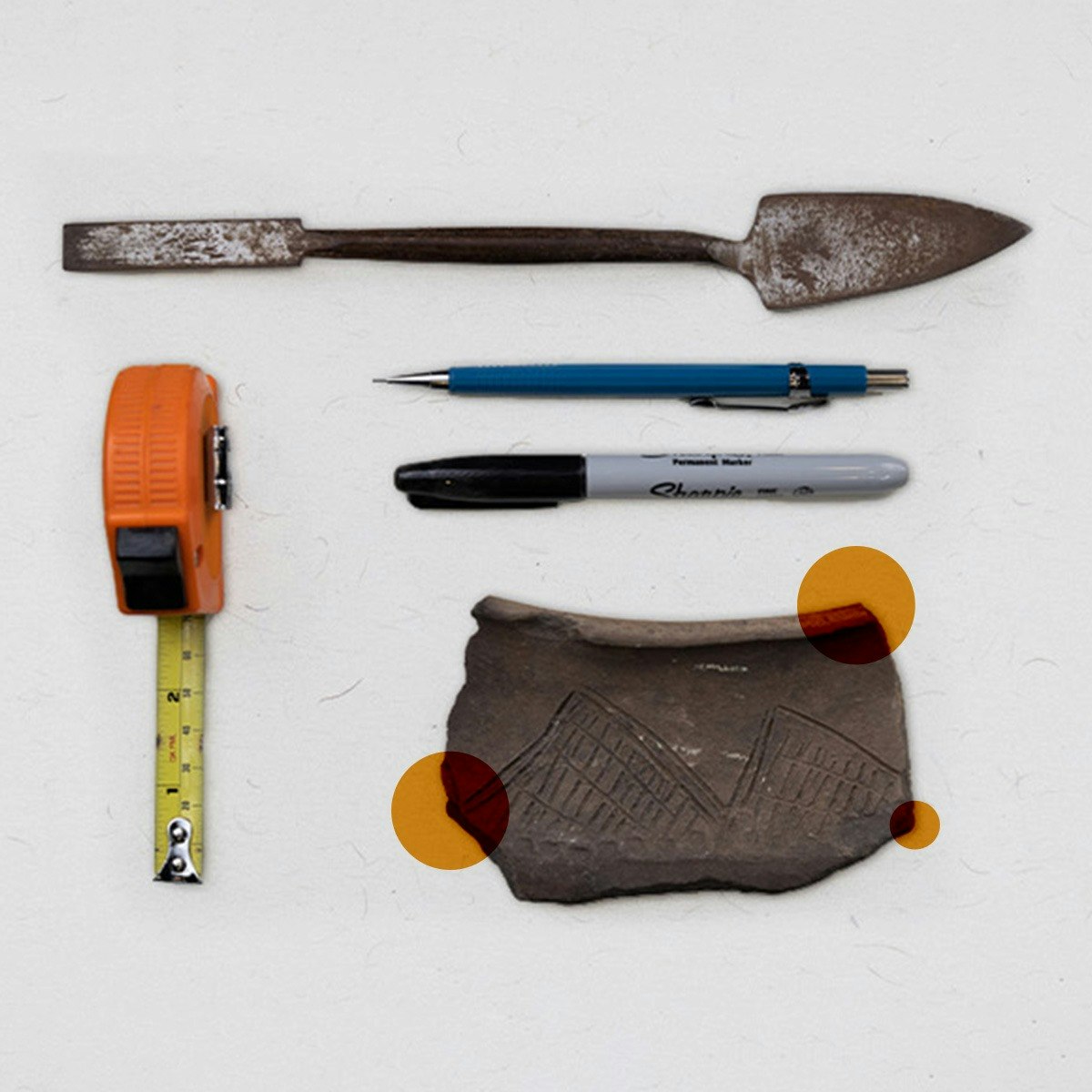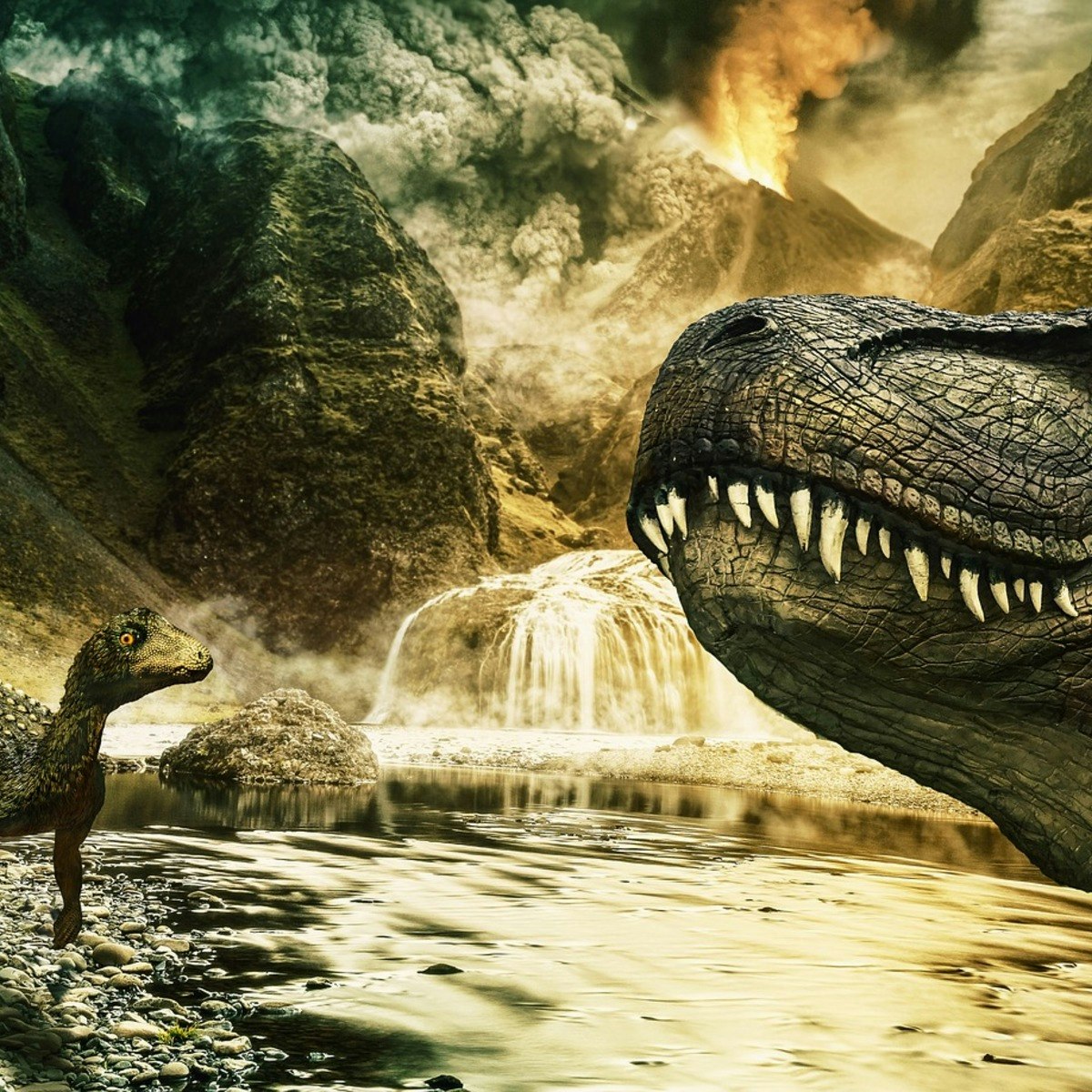Paleontologist
Unearthing a Career: A Guide to Becoming a Paleontologist
Paleontology is the scientific study of life that existed prior to, and sometimes including, the start of the Holocene Epoch (roughly 11,700 years before present). It involves studying fossils to determine organisms' evolution and interactions with each other and their environments. As a historical science, it uses the fossil record to understand processes like evolution, extinction, and past climate change.
Imagine uncovering the fossilized bones of a dinosaur that roamed the Earth millions of years ago, or meticulously analyzing microscopic fossils to reconstruct ancient ecosystems. Paleontology offers the thrill of discovery, combining outdoor fieldwork in potentially remote locations with detailed laboratory analysis. It's a field where you connect the deep past to the present, contributing to our understanding of life's history and the forces that shape it.
Overview of Paleontology
What is Paleontology?
At its core, paleontology is the science of ancient life. Paleontologists use fossil remains—bones, shells, exoskeletons, stone imprints, hair, petrified wood, oil, coal, and DNA remnants—to understand the history of life on Earth. It's not just about dinosaurs; it encompasses all life forms, from single-celled organisms to giant mammals, and the environments they inhabited.
This field acts as a bridge between biology and geology, incorporating knowledge from both to paint a picture of the past. Understanding rock formations (stratigraphy) is crucial for dating fossils, while biological principles help interpret the form, function, and evolution of ancient organisms. It's an investigative science, piecing together clues from incomplete evidence.
The scope is vast, covering billions of years of Earth's history. Paleontologists might study the origins of life, track the evolution of major groups like vertebrates or plants, investigate mass extinction events, or reconstruct past climates using fossil indicators. It's a discipline constantly refined by new discoveries and technologies.
Key Sub-disciplines
Paleontology isn't a single monolithic field; it branches into various specializations based on the type of organism or the scale of study. Vertebrate paleontology focuses on animals with backbones, including dinosaurs, ancient mammals, fish, amphibians, and reptiles. This is often the most publicly recognized branch.
Invertebrate paleontology deals with animals lacking backbones, such as mollusks, corals, trilobites, and insects. These fossils are often abundant and crucial for dating rock layers (biostratigraphy) and understanding ancient marine environments. Micropaleontology studies microscopic fossils, like foraminifera or pollen, requiring specialized laboratory techniques. These tiny fossils are invaluable for climate reconstruction and oil exploration.
Other sub-disciplines include paleobotany (fossil plants), paleoecology (interactions between ancient organisms and their environments), ichnology (trace fossils like footprints and burrows), and molecular paleontology (study of preserved biomolecules). Each offers a unique lens through which to view Earth's history.
These foundational courses explore the breadth of life's history and evolutionary processes.
Historical Development
Humans have encountered fossils for millennia, often interpreting them through mythological lenses. Scientific paleontology began to take shape in the 17th and 18th centuries with scholars like Nicolaus Steno, who established principles for interpreting sedimentary rock layers, and Georges Cuvier, considered a father of paleontology, who championed the concept of extinction.
The 19th century was a "golden age" of fossil discovery, fueled by figures like Mary Anning, who made significant finds along England's coast, and the intense "Bone Wars" rivalry between Othniel Charles Marsh and Edward Drinker Cope in the American West. This era established many foundational concepts and museum collections.
The 20th century saw the integration of evolutionary theory, genetics, and plate tectonics into paleontology, leading to a more dynamic understanding of life's history. The development of radiometric dating provided precise ages for fossils and rocks. Today, the field incorporates advanced imaging, chemical analysis, and computational methods.
These books provide excellent overviews of the history of life and key discoveries in paleontology.
Relationship to Other Sciences
Paleontology is inherently interdisciplinary. Its strongest ties are with geology, as fossils are found within rocks, and understanding geological context (like stratigraphy and sedimentology) is essential for interpretation. Biology provides the framework for understanding the anatomy, physiology, evolution, and ecology of ancient organisms.
Anthropology, particularly paleoanthropology, overlaps significantly when studying human origins and evolution, relying heavily on fossil evidence.
Chemistry is used for dating fossils (radiometric dating) and analyzing the chemical composition of fossils and surrounding rocks (geochemistry) to understand preservation and past environments. Physics principles underpin dating techniques and biomechanical analyses (e.g., how dinosaurs moved). Increasingly, computer science and data analysis are vital for managing large datasets and modeling past processes.
Core Responsibilities of a Paleontologist
Fieldwork: Excavation and Site Documentation
Fieldwork is often the most romanticized aspect of paleontology, involving travel to remote locations to search for and excavate fossils. This work requires careful planning, knowledge of geology to identify promising rock formations, and physical stamina. Excavation is a meticulous process, often using tools ranging from jackhammers to dental picks, depending on the rock and fossil fragility.
Equally important is precise documentation. Paleontologists map the location of finds using GPS and surveying equipment, record the geological context (rock layers, sediment type), and photograph the site extensively. Detailed field notes are crucial, as context is lost once a fossil is removed. This data ensures the scientific value of the discovery.
Fieldwork can be physically demanding, involving hiking, digging, and carrying heavy loads in potentially harsh weather conditions. It often requires camping or living in basic conditions for extended periods. Safety protocols are essential, covering everything from tool use to wildlife encounters.
Understanding geological processes is fundamental for fieldwork.
Laboratory Analysis Techniques
Once fossils are excavated (often encased in protective plaster jackets), they are transported to a laboratory for preparation and analysis. Fossil preparation involves carefully removing the surrounding rock matrix, a painstaking process that can take months or even years. Specialized tools like air scribes, micro-jacks, and needles are used under magnification.
Analysis involves detailed anatomical study, measurement, and comparison with other specimens. Techniques can include microscopy (light and electron scanning), CT scanning for non-destructive internal imaging, and chemical analysis (like stable isotope analysis) to infer diet or environment. Increasingly, digital methods like 3D scanning and modeling are used for analysis and reconstruction.
Laboratory work requires patience, fine motor skills, and a strong understanding of anatomy and preservation processes (taphonomy). It's often here that the true scientific significance of a field discovery is revealed through careful study and comparison.
These courses introduce vertebrate evolution and the types of analysis involved.
Academic Publishing and Peer Review
A crucial part of a paleontologist's work, particularly in academia and museums, is disseminating research findings. This typically involves writing detailed scientific papers describing new discoveries, analyses, or interpretations. These papers are submitted to peer-reviewed journals, where other experts in the field evaluate the research's validity, methodology, and significance.
The peer review process is rigorous, often involving multiple rounds of revisions based on reviewer feedback. Successful publication contributes to the broader scientific knowledge and is essential for career advancement, particularly in securing funding and academic positions. Paleontologists also present their findings at scientific conferences.
Strong writing and communication skills are vital for effectively conveying complex scientific information. This includes not only formal publications but also grant proposals needed to secure funding for research projects, a constant challenge in the field.
Museum Curation and Public Education
Many paleontologists work in museums, where their responsibilities extend beyond research. Curation involves managing fossil collections – ensuring proper storage, cataloging, conservation, and accessibility for research. This is vital work, as museum collections are irreplaceable libraries of Earth's history.
Public education and outreach are also key roles. Museum paleontologists often contribute to designing exhibits, giving public lectures, developing educational programs for schools, and interacting with the media. Communicating the excitement and importance of paleontology to the public helps foster scientific literacy and support for the field.
This requires excellent communication skills, adapting complex topics for diverse audiences. It involves translating scientific findings into engaging narratives and experiences, inspiring the next generation of scientists and informing the public about the history of life.
Formal Education Pathways
Undergraduate Prerequisites
A strong foundation in the sciences is essential for aspiring paleontologists. An undergraduate degree is the first step, typically a Bachelor of Science (B.S.). While some universities offer specific paleontology tracks, a major in Geology or Biology is most common and provides the necessary background.
Coursework should ideally include a broad range of geology topics (like sedimentology, stratigraphy, mineralogy, structural geology) and biology topics (evolution, ecology, genetics, comparative anatomy, invertebrate/vertebrate zoology). Strong foundations in chemistry, physics, mathematics (especially calculus and statistics), and computer science are also highly recommended.
Gaining practical experience during undergraduate studies is crucial. This can include volunteering in museum collections, participating in faculty research projects, attending geological field camps, or seeking summer internships related to paleontology or natural history.
These courses cover essential biological and geological concepts relevant to paleontology.
Graduate Specializations
For most research and academic careers in paleontology, a graduate degree (Master's and/or Ph.D.) is required. Graduate programs allow students to specialize within the vast field of paleontology. Students typically enter programs within Geology/Earth Science or Biology departments, depending on their specific interests (e.g., paleoecology vs. vertebrate morphology).
Choosing a graduate program involves finding faculty members whose research aligns with your interests. Specializations might include vertebrate paleontology, invertebrate paleontology, paleobotany, micropaleontology, paleoecology, biostratigraphy, taphonomy, or focusing on specific geological periods or fossil groups.
Master's programs often involve coursework and a research thesis, providing advanced training and research experience. They can be a stepping stone to a Ph.D. or prepare students for certain technical or collections management roles. Strong academic performance and research potential are key for admission.
Consider these books for deeper dives into evolutionary biology.
PhD Requirements and Dissertation Focus
A Ph.D. is generally the terminal degree for those aiming for university faculty positions, museum curatorship roles, or independent research careers. Ph.D. programs involve advanced coursework, comprehensive exams demonstrating broad knowledge, and, most importantly, original research culminating in a dissertation.
The dissertation requires conducting significant, novel research within a chosen specialization. This involves developing a research question, designing methodology, collecting and analyzing data (field, lab, or computational), interpreting results, and writing a substantial thesis. The process typically takes 4-7 years beyond a bachelor's degree.
Choosing a dissertation topic and advisor is a critical decision. The research should contribute meaningfully to the field and demonstrate the student's ability to conduct independent scientific inquiry. Successful completion signifies expertise in a specific area of paleontology.
Exploring related fields like archaeology can provide useful perspectives and techniques.
Postdoctoral Research Opportunities
After completing a Ph.D., many paleontologists pursue postdoctoral research positions ("postdocs"). These are temporary research-focused roles, often funded by grants, allowing early-career scientists to gain further research experience, publish papers, build their professional network, and develop new skills.
Postdocs typically last 1-3 years and are often seen as a necessary step towards securing permanent academic or research positions. They provide an opportunity to work with different mentors, broaden research horizons, and strengthen one's CV in a highly competitive job market.
Finding postdoc positions often involves networking, searching job boards (like those hosted by scientific societies), and sometimes applying for specific fellowship programs. These positions allow for deeper specialization and independence in research before seeking long-term employment.
Career Progression in Paleontology
Entry-Level Roles
With a Bachelor's or sometimes a Master's degree, individuals might find entry-level positions supporting paleontological work. Roles like field technician involve assisting with fossil excavation and site documentation. Museum technician or collections assistant roles focus on preparing fossils in the lab, cataloging specimens, and maintaining collections.
Research assistant positions might involve helping Ph.D. students or faculty with lab work, data entry, or literature searches. Some opportunities may exist in environmental consulting firms requiring paleontological surveys before construction projects, often involving fossil identification and site assessment.
These positions provide valuable hands-on experience but often offer limited opportunities for independent research or advancement without further education. They are crucial support roles within the broader paleontological enterprise.
Mid-Career Paths
With a Ph.D. and often postdoctoral experience, paleontologists typically pursue mid-career roles in academia, museums, or government agencies. University faculty positions combine teaching (undergraduate and graduate courses) with independent research, mentoring students, and seeking grant funding.
Museum curators also conduct research but have significant responsibilities for managing collections, developing exhibits, and engaging in public outreach. Government paleontologists might work for geological surveys (like the U.S. Geological Survey), managing fossil resources on public lands, conducting research relevant to resource management, or mapping geological formations.
These roles require a high level of expertise, a strong publication record, and often grant-writing success. Competition for these positions, especially tenure-track faculty jobs and lead curator roles, is intense.
Senior Positions
With significant experience and a strong reputation, paleontologists can advance to senior leadership positions. In academia, this might mean becoming a full professor, department chair, or university administrator. In museums, senior curators might oversee entire departments or lead major research initiatives and exhibit projects.
Senior roles in government could involve managing national paleontological resource programs or advising on policy related to fossil preservation and land use. Some experienced paleontologists may lead large, multi-institutional research projects or hold leadership positions in professional societies.
These positions often involve more administrative and leadership responsibilities alongside, or sometimes instead of, direct research. They require extensive experience, a proven track record of success, and strong leadership and management skills.
Alternative Careers in Adjacent Industries
Not everyone with paleontological training remains in traditional academic or museum roles. The skills acquired are transferable to other fields. A strong background in geology makes some paleontologists well-suited for careers in the energy sector (oil, gas, geothermal) or mining, particularly in roles involving stratigraphy and sedimentary basin analysis.
Skills in data analysis, scientific writing, and communication are valuable in science journalism, policy advising, environmental consulting, or secondary school science education. Some paleontologists leverage their expertise to work in science illustration, exhibit design firms, or even in the entertainment industry as consultants.
For those considering a pivot, reflecting on transferable skills—like critical thinking, data interpretation, project management, and detailed observation—is key. Online courses through platforms like OpenCourser can help bridge skill gaps for transitions into fields like data science or science communication.
Fieldwork Ethics and Preservation
Fossil Ownership and Repatriation Debates
The ownership of fossils can be complex and contentious. Rules vary significantly depending on whether fossils are found on private, state, or federal land, and differ between countries. In the U.S., fossils found on federal land are generally considered public property, managed for scientific and educational purposes, while those on private land often belong to the landowner.
This leads to ethical dilemmas, particularly regarding the commercial sale of scientifically important fossils found on private land, which can remove them from scientific study and public access. International repatriation debates arise when fossils are collected in one country (sometimes illegally) and end up in collections elsewhere, raising questions about rightful ownership and cultural heritage.
Professional societies, like the Society of Vertebrate Paleontology, have ethical guidelines urging that scientifically significant fossils be placed in public repositories (like museums) where they can be studied in perpetuity. The increasing commercialization of fossils is seen by many as a major threat to the science.
Site Preservation Protocols
Protecting fossil sites from damage, erosion, and unauthorized collection is crucial. Paleontologists employ various protocols during and after excavation. This includes minimizing disturbance to the surrounding environment, carefully documenting the site before and during excavation, and sometimes backfilling or stabilizing the site afterwards to prevent erosion.
On public lands, permits are required for excavation, and specific stipulations ensure resources are managed responsibly. Site confidentiality is sometimes necessary to protect sensitive locations from looting or vandalism. Collaboration with land managers (e.g., Bureau of Land Management, National Park Service) is essential for long-term preservation.
Preservation extends to the fossils themselves. Proper collection techniques, including using protective plaster jackets for fragile specimens, and subsequent conservation in the lab are vital for ensuring the long-term integrity of these irreplaceable resources.
Collaboration with Indigenous Communities
Much paleontological fieldwork occurs on lands with deep historical and cultural significance to Indigenous communities. Ethical practice increasingly emphasizes the importance of collaboration, consultation, and respect for Indigenous rights and knowledge when conducting research on these lands.
This can involve seeking permission not only from government agencies but also from tribal authorities, involving community members in the fieldwork process, sharing research findings in accessible ways, and respecting sacred sites or traditional cultural properties that might be encountered.
Building respectful, long-term relationships with Indigenous communities is essential. Integrating traditional ecological knowledge with scientific methods can lead to richer understandings of past environments and fosters more equitable and ethical research practices.
Climate Impact on Excavation Sites
Climate change poses a growing threat to paleontological resources. Increased erosion rates due to more extreme weather events can rapidly expose and destroy fossils before they can be discovered and collected. Coastal sites are particularly vulnerable to sea-level rise and intensified storm surges.
Changes in temperature and precipitation patterns can also affect permafrost regions, potentially damaging frozen fossils, and alter accessibility to remote field sites. Paleontologists are increasingly aware of these impacts and the need for proactive site monitoring and salvage operations in vulnerable areas.
Ironically, while climate change threatens fossil resources, the study of past climate change using paleontological data (paleoclimatology) is crucial for understanding our current climate crisis. This highlights the dual challenge and importance of the field in an era of environmental change.
Learn more about past extinctions and climate's role.
Technological Tools in Modern Paleontology
3D Scanning and Printing of Fossils
Digital technologies have revolutionized how fossils are studied and shared. High-resolution 3D scanners (using lasers or structured light) create detailed digital models of fossils without physical contact. Photogrammetry uses multiple photographs to achieve similar results. These models allow for precise measurements, virtual reconstruction of fragmented specimens, and biomechanical analysis.
3D printing enables the creation of physical replicas from these digital models. This is invaluable for education, museum exhibits (allowing hands-on interaction without risking original fossils), and research (e.g., testing functional morphology). Digital models can also be easily shared online, increasing accessibility for researchers worldwide.
These techniques allow non-invasive study and wider dissemination of fossil data, transforming accessibility and analytical possibilities. Search results indicate widespread adoption of these tools.
Geospatial Mapping Software
Geographic Information Systems (GIS) and Global Positioning System (GPS) technology are essential tools in modern paleontological fieldwork and analysis. GPS allows for precise recording of fossil localities and excavation boundaries. GIS software is used to map these locations, integrate them with geological maps, satellite imagery, and topographic data.
This spatial analysis helps paleontologists understand the distribution of fossils in relation to ancient environments, track changes over time, identify promising areas for future exploration, and manage site data effectively. Drones equipped with cameras or scanners are also increasingly used for high-resolution site mapping, especially in difficult terrain.
These tools enhance the accuracy and efficiency of fieldwork documentation and enable powerful spatial analyses that were previously difficult or impossible.
Chemical Analysis Equipment
Advanced analytical chemistry techniques provide insights into fossil composition, preservation, and ancient environments. Techniques like X-ray fluorescence (XRF) and Energy-dispersive X-ray spectroscopy (EDS) map the elemental composition of fossils and surrounding rock, revealing subtle details like traces of soft tissues or original coloration patterns.
Stable isotope analysis (measuring ratios of isotopes like carbon, oxygen, or nitrogen in fossil bone or teeth) can reveal information about diet, climate, and migration patterns of ancient animals. Mass spectrometry is a key technology for these analyses. Fourier-transform infrared (FTIR) spectroscopy helps identify preserved organic molecules.
These methods move beyond morphology, extracting biochemical and geochemical data directly from the fossil record, opening new avenues for understanding ancient life.
AI Applications in Fossil Pattern Recognition
Artificial intelligence (AI) and machine learning are emerging tools in paleontology. Algorithms can be trained to analyze large datasets, such as vast collections of microfossils or images from CT scans, to identify patterns, classify specimens, or even predict characteristics more efficiently than human analysis alone.
AI can assist in analyzing complex morphological data from 3D scans, potentially identifying subtle differences between species or tracking evolutionary changes. It can also aid in analyzing large geological datasets to predict areas with high fossil potential.
While still a developing area, AI holds promise for automating certain analytical tasks, processing large volumes of data, and potentially uncovering patterns missed by traditional methods, accelerating the pace of discovery.
Global Job Market Analysis
Government vs Private Sector Opportunities
Paleontology employment spans several sectors. Government agencies, such as national geological surveys (e.g., USGS), land management bureaus (BLM, NPS), and state surveys, employ paleontologists for resource management, mapping, research, and policy advice.
Museums, often publicly funded or non-profit institutions, are major employers, particularly for curators and collections managers. Universities represent the largest academic employment sector, hiring faculty for teaching and research. These roles are highly competitive.
Private sector opportunities exist, primarily in the petroleum industry, where micropaleontologists and biostratigraphers help locate oil and gas reserves. Environmental consulting firms also hire paleontologists for impact assessments related to construction and development projects.
Regional Demand Variations
Job demand can vary geographically. Areas rich in fossil fuel resources (like Texas, Alaska, or parts of the Rocky Mountains) may have more industry-related jobs. Regions with major universities and natural history museums (like California, the Northeast US, or major European cities) tend to have more academic and museum positions.
Fieldwork opportunities are concentrated in regions with exposed fossil-bearing rock formations, such as the American West, Patagonia, the Gobi Desert, or parts of Africa and Europe. However, lab-based and collections-based jobs are located where institutions are based, not necessarily where fossils are found.
International opportunities exist, but often require navigating different funding systems, languages, and visa requirements. Overall, the job market is global but geographically clustered based on resources and institutions.
Funding Trends for Paleontological Research
Securing funding is a persistent challenge in paleontology, particularly for basic or "pure" research without immediate applied outcomes. Major funding sources in the US include federal agencies like the National Science Foundation (NSF), which supports academic research through various programs (e.g., Sedimentary Geology and Paleobiology). Private foundations (like the Jurassic Foundation) and scientific societies (e.g., Paleontological Society grants) also offer research support, often targeting students or specific research areas.
Search results highlight concerns about shrinking funding sources and increased competition for grants. There's a trend towards funding research with clear societal impacts or applications, potentially disadvantaging more fundamental paleontological inquiry. Crowdfunding platforms have emerged as an alternative way to support specific projects.
Consistent effort in grant writing is essential for paleontologists in research-focused roles. Funding scarcity impacts not only research progress but also job security and the availability of positions.
Competition Metrics and Tenure-Track Statistics
The job market for permanent academic positions (tenure-track faculty) and museum curatorial roles in paleontology is extremely competitive. Many more Ph.D.s are produced than available permanent positions. Studies suggest only a small percentage of science Ph.D. graduates secure long-term academic research careers.
Data specifically for paleontology indicates similar challenges, with some studies suggesting retention rates in academia might be slightly higher than the overall science average but still low, particularly for certain sub-disciplines or demographic groups. Postdoctoral positions are often a necessary, but not guaranteed, pathway.
Aspiring academic paleontologists need a strong publication record, grant-writing skills, teaching experience, and networking abilities. Persistence and flexibility are crucial. While fulfilling, the path to a permanent research career is demanding and requires navigating significant competition.
Challenges in Contemporary Paleontology
Funding Scarcity for Basic Research
As mentioned, obtaining adequate funding remains a primary challenge. Paleontology often competes for resources with fields perceived as having more direct societal or economic benefits. This pressure can steer research towards more applied questions (like climate change impacts or resource exploration) and away from fundamental questions about evolution or ancient life.
Budget cuts to federal agencies and shifting government priorities can further constrain funding opportunities. This impacts the ability to conduct fieldwork, maintain collections, support students, and invest in new technologies. The struggle for funding is a constant reality for many researchers.
Advocating for the value of basic science and the unique insights paleontology provides into Earth's history, evolution, and environmental change is crucial for sustaining the field.
Climate Change Impacts on Fossil Sites
The physical impacts of climate change directly threaten the raw data of paleontology. Increased erosion, melting permafrost, sea-level rise, and extreme weather events can destroy irreplaceable fossil sites before they are discovered or excavated. This represents a potential loss of vast amounts of information about past life.
Paleontologists face the challenge of identifying vulnerable sites and prioritizing rescue or salvage paleontology efforts, often with limited resources. This adds urgency and logistical complexity to fieldwork planning.
The field must adapt its strategies to cope with these accelerating environmental changes, developing new methods for site monitoring and rapid response excavation in threatened areas.
Public Misconceptions about the Field
While popular (often thanks to dinosaurs), paleontology sometimes suffers from public misconceptions. It can be seen solely as "dinosaur hunting," overlooking the vast diversity of life studied and the rigorous scientific methods employed. The distinction between paleontology and archaeology is often blurred in the public eye.
Misunderstandings about evolution, deep time, and the nature of scientific evidence can also pose challenges. The commercialization of fossils contributes to the perception of fossils as commodities rather than scientific data, undermining preservation efforts.
Effective public outreach and education are vital to counter these misconceptions, communicate the breadth and relevance of the field, and build public support for scientific research and conservation.
Interdisciplinary Collaboration Barriers
While inherently interdisciplinary, fostering effective collaboration across fields like geology, biology, chemistry, and computer science can still be challenging. Differences in terminology, methodologies, publication norms, and departmental structures can create barriers.
Integrating large, diverse datasets (e.g., fossil data with modern climate models or genetic information) requires bridging different data standards and analytical approaches. Building teams with the necessary diverse expertise requires effort and resources.
Overcoming these barriers requires fostering communication, developing shared platforms and standards, and encouraging training that spans traditional disciplinary boundaries. Initiatives promoting open science and data sharing are crucial for facilitating broader collaboration.
Frequently Asked Questions
What's the average salary range across career stages?
Salary data for paleontologists varies widely depending on the source, location, sector (academia, government, industry), degree level, and experience. Some sources like ZipRecruiter reported an average annual pay around $58,722 as of early 2025, with ranges from $31,000 to $109,000. Other sources like ERI Economic Research Institute suggest a much higher average, around $103,072, with a range of $71,429 to $125,645. Comparably reported an average of $98,692 in late 2023.
The U.S. Bureau of Labor Statistics (BLS) groups paleontologists under "Geoscientists," reporting a median annual wage of $92,580 in May 2023 for that broader category. Entry-level positions (e.g., technicians) typically pay less, while senior academic or industry positions can pay significantly more, sometimes exceeding $100,000 or even $180,000 at the highest end, particularly in the petroleum industry.
Salaries in academia and museums are often lower than in the private sector (like oil and gas). Geographic location also plays a significant role, with higher salaries often found in areas with a higher cost of living or strong industry presence.
Can I work in paleontology without a PhD?
Yes, it is possible to work in paleontology-related fields without a Ph.D., although opportunities for independent research and higher-level positions are limited. A Bachelor's degree in geology or biology can qualify individuals for roles as field assistants, museum technicians (fossil preparation, collections assistance), or sometimes entry-level positions in environmental consulting.
A Master's degree can open up more opportunities, potentially including roles in collections management, some community college teaching positions, work with government geological surveys, or more specialized roles in consulting or industry (especially micropaleontology).
However, for university faculty positions, museum curatorship roles, or leading independent research projects, a Ph.D. is almost always required. The level of education needed depends heavily on the specific career path and responsibilities desired.
How does paleontology contribute to energy industries?
Paleontology, particularly micropaleontology and biostratigraphy, plays a significant role in the exploration for fossil fuels (oil and natural gas). Microfossils, such as foraminifera or pollen, are abundant in sedimentary rocks associated with oil deposits. Their specific types and assemblages change rapidly through geologic time.
By identifying the microfossils present in rock cuttings from drilling operations, paleontologists can accurately determine the age of the rock layers and correlate them across different locations. This helps geologists understand the subsurface structure, identify potential oil-bearing formations, and guide drilling decisions.
While the demand in this sector can fluctuate with energy prices and industry trends, it represents a significant non-academic career path for paleontologists with the relevant expertise, particularly those specializing in microfossils and stratigraphy.
What's the job growth projection for this field?
Job growth projections vary. The BLS projects employment for the broader category of "Geoscientists" to grow 5% from 2023 to 2033, which is considered about as fast as the average for all occupations. Zippia cited a similar 5% growth projection specifically for paleontologists covering 2018-2028.
However, other sources note that the job market, particularly for academic and museum positions, is highly competitive, with potentially fewer jobs than a few years ago. Some sources indicate the market is "not very active." The Paleontological Research Institution has noted conservatism in the outlook specifically for paleontologists despite overall geoscientist growth.
While opportunities exist, particularly related to environmental management, resource exploration, and ongoing academic/museum needs, the overall number of dedicated paleontology positions is relatively small compared to the number of qualified individuals. Job prospects are stable but competition remains high, especially for research-focused roles.
Are there international fieldwork opportunities?
Absolutely. Paleontology is a global science, and many significant fossil discoveries are made outside of North America. Researchers often conduct fieldwork in locations known for rich fossil deposits, such as South America (Patagonia), Africa (East African Rift Valley, Morocco), Asia (China, Mongolia), Europe, and Australia.
These opportunities may arise through collaborations with international researchers and institutions, participation in expeditions organized by museums or universities, or securing grants specifically for international fieldwork. Working internationally requires careful planning, logistical arrangements, obtaining necessary permits, and often navigating different cultural and linguistic contexts.
For students and early-career researchers, participating in international fieldwork can be an invaluable experience, broadening scientific perspectives and building global connections.
How competitive are museum curator positions?
Museum curator positions in paleontology are highly competitive. These roles typically require a Ph.D., a strong record of research and publication, expertise in a specific area of paleontology, experience with collections management, and often skills in exhibit development and public outreach.
Major natural history museums receive numerous applications for any open curatorial position. There are relatively few such positions compared to the number of qualified candidates emerging from Ph.D. programs each year. Securing a curatorship often requires significant postdoctoral experience and a well-established research profile.
While demanding, these positions offer the unique opportunity to conduct research while also managing irreplaceable collections and sharing the wonders of paleontology with the public.
Embarking on Your Paleontological Journey
Pursuing a career in paleontology is a path fueled by passion for discovery and understanding the deep history of life on Earth. It demands rigorous scientific training, dedication, and perseverance through challenging fieldwork, meticulous lab work, and a competitive job market. While the journey requires significant commitment, the rewards of contributing to our knowledge of the ancient world can be immense.
Whether your path leads to academia, a museum, government service, industry, or related fields, the foundational knowledge and skills gained are valuable. For those captivated by the story written in stone, exploring paleontology—even through online courses, museum visits, or amateur fossil clubs—can be a lifelong adventure. If you are considering this path, be prepared for the challenges, but embrace the excitement of potentially unearthing the next major clue to life's incredible history.
Explore foundational courses and related topics on OpenCourser to begin your journey into the world of paleontology.

